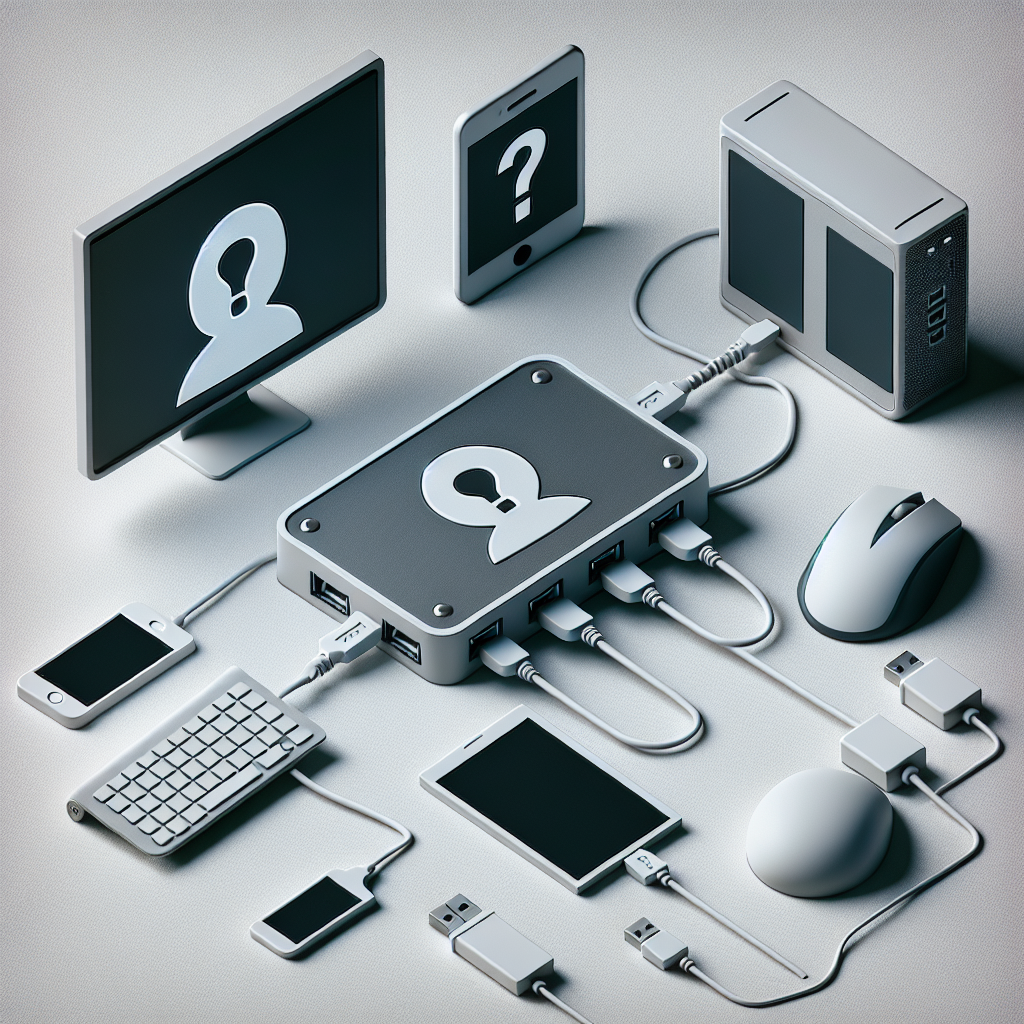Understanding USB Hubs
USB hubs are devices that allow multiple USB devices to connect to a single USB port on your computer or laptop. They come in powered and unpowered varieties. While they are incredibly convenient, there are instances when devices appear not to work correctly when connected through a USB hub. Understanding the reasons behind these issues can help you troubleshoot effectively. Below is a comprehensive overview of why your device may not function properly when connected to a USB hub.
| Issue | Description |
|---|---|
| Insufficient Power Supply | Many USB hubs, especially unpowered ones, do not provide enough power for multiple devices to function simultaneously. |
| Driver Issues | Outdated or incompatible drivers can prevent devices from being recognized by the system. |
| Compatibility Issues | Some devices may not be compatible with certain USB hubs, leading to malfunction. |
| Faulty USB Hub | A damaged or faulty USB hub can cause connectivity problems. |
| Overloading the Hub | Connecting too many devices to the hub can overload it, causing devices to be unresponsive. |
Common Reasons Devices Fail to Work with USB Hubs
1. Insufficient Power Supply
One of the most common issues with USB hubs is inadequate power. Unpowered USB hubs, which draw power from the computer, are often unable to supply enough power to all connected devices. Devices such as external hard drives and printers require more power than the hub can provide. Thus, they may not work correctly or may not be detected at all.
2. Driver Issues
If your device is not functioning properly with a USB hub, it could be due to driver issues. Devices require specific drivers to communicate with the operating system. If these drivers are outdated or improperly installed, the device may not be recognized. It is essential to regularly update drivers and ensure compatibility with the operating system.
3. Compatibility Issues
Compatibility between your USB devices and the hub itself matters. Some devices require USB 3.0 or higher for optimal performance, while older hubs may only support USB 2.0. Additionally, not all USB hubs are designed to support every type of device, leading to potential incompatibility issues.
4. Faulty USB Hub
A faulty or damaged USB hub can cause multiple issues when connecting devices. Physical damage, wear and tear, or manufacturing defects can prevent the hub from working correctly. Testing the hub with different devices or using it on another computer can help determine if the hub itself is the issue.
5. Overloading the Hub
Another important factor to consider is the number of devices connected to the hub. Each USB connection has a limited power capacity and if too many power-hungry devices are connected simultaneously, the hub may not function correctly. This can lead to devices not recognizing, malfunctioning, or failing to respond altogether.
Troubleshooting Steps
If you’re experiencing issues with devices connected through a USB hub, follow these troubleshooting steps:
- Check Power Supply: Ensure that if you are using a powered USB hub, it is plugged into an electrical outlet.
- Verify Connections: Make sure all connections are secure and the cables are not damaged.
- Test the Hub: Connect your devices directly to your computer to see if they work without the hub.
- Update Drivers: Check the manufacturer’s website for the latest drivers for your devices.
- Reduce Load: Try connecting fewer devices to determine if the hub can handle the devices when fewer are connected.
Conclusion
Using a USB hub can significantly increase efficiency by allowing multiple devices to connect to a single port. However, issues can arise due to power limitations, compatibility, driver problems, and potential flaws in the hub itself. By understanding the common reasons that devices may not work when connected to a USB hub and following the troubleshooting steps outlined in this article, you can enhance the functionality of your devices and enjoy a better connectivity experience. Remember, if problems persist, it might be worth considering a high-quality powered USB hub or consulting with technical support for further assistance.

